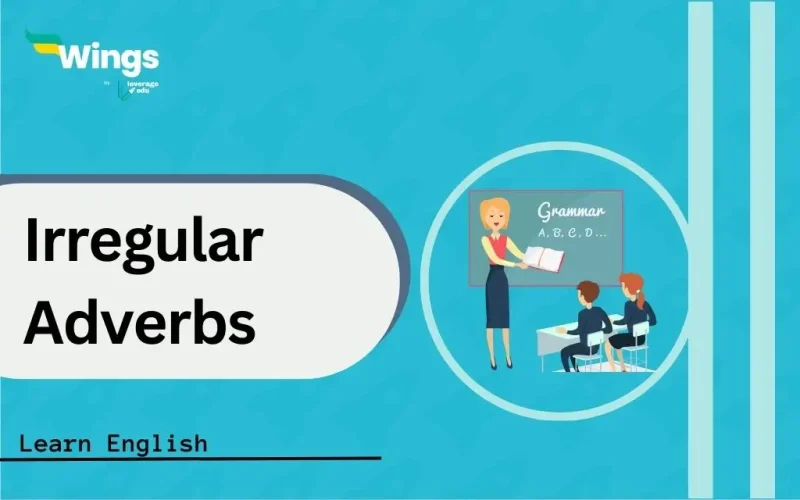Irregular Adverbs can be tricky to understand when used in English grammar. Wondering what they are? Well, these adverbs do not follow the normal rules of the formation of an adverb. As a grammar nazi, you must be aware that they are usually derived from adjectives, but can also be used as adverbs without even changing the original form. Some common irregular adverbs are ‘deep, fast, hard, slow’ and several others. Continue reading this blog to know all about these adverbs and how they can be used in sentences to enhance with the help of the examples mentioned.
This Blog Includes:
Learn All About Adverbs
What are Irregular Adverbs?
Irregular adverbs are those that do not follow the standard pattern of adding “-ly” to an adjective to form the adverb (as the original rule says). Instead, they have unique forms that don’t necessarily derive directly from the corresponding adjective. These adverbs often have distinct spelling or pronunciation compared to their adjective counterparts. Some common examples of these adverbs include “well,” “fast,” “hard,” and “late.”
List of Irregular Adverbs
Here is a list of irregulars that you should be aware of to avoid committing any error:
Examples of Irregular Adverbs
Below are some of the common examples that will help in the formation of sentences:
- The plane flew high above the clouds.
- The diver went deep into the ocean to explore the coral reefs.
- The music at the concert was loud enough to be heard from blocks away.
- There’s a café near the office where we can grab lunch.
- The bus arrived early, so we didn’t have to wait long.
- He knows the city well because he grew up here.
- She typed fast to finish the report before the deadline.
- He studied hard for the test but still didn’t do well.
- Don’t stay up too late; you have an early meeting tomorrow.
- The nearest grocery store is too far to walk; we’ll need to drive.
Irregular Adverbs Exercise
Fill in the blanks with the correct form of the irregular adverbs.
- She sings _____ (well) than anyone I know.
- He ran _____ (fast) to catch the bus.
- They arrived _____ (late) for the meeting.
- The students worked _____ (hard) to pass the exam.
- The baby slept _____ (sound) through the night.
- She speaks French _____ (fluently) after living in Paris for years.
- The magician performed the trick _____ (cleverly) that no one could figure it out.
- He made a mistake _____ (often) than he would like to admit.
- The athlete jumped _____ (far) than the others in the competition.
- She solved the puzzle _____ (easily) than expected.
Check Your Answers
- better
- faster
- later
- harder
- more soundly
- more fluently
- more cleverly
- more often
- farther
- more easily
Related Reads
| What is the Adverb for Work? | Examples of Negative Adverbials |
| Making Adverbs from Adjectives | Adverbial Phrase Examples to Improve Your English! |
| What is the Adverb for Purpose | What is the Adverb for Hard |
FAQs
Irregular adverbs are adverbs that do not follow the standard “-ly” formation rule. They often have unique forms or are the same as their adjective counterparts.
Yes, the word ‘daily’ is an irregular adverb.
Following are 10 examples of irregular adverbs: Well, daily, early, fast, hard, loud, near, deep, far and late.
Common examples include:
“well” (from “good”)
“fast” (same as the adjective)
“hard” (same as the adjective)
“late” (same as the adjective, or “lately” with a different meaning)
Yes, “fast” is one of the irregular adverbs that remains the same in both adjective and adverb forms.
Pay attention to the context and the word’s function in the sentence. If it modifies a verb and doesn’t end in “-ly,” it’s likely an irregular adverb.
We hope this blog has provided you with all the necessary information on irregular adverbs. To advance your grammar knowledge and read more informative blogs, check out our Learn English page and don’t forget to follow Leverage Edu.


 One app for all your study abroad needs
One app for all your study abroad needs












 60,000+ students trusted us with their dreams. Take the first step today!
60,000+ students trusted us with their dreams. Take the first step today!